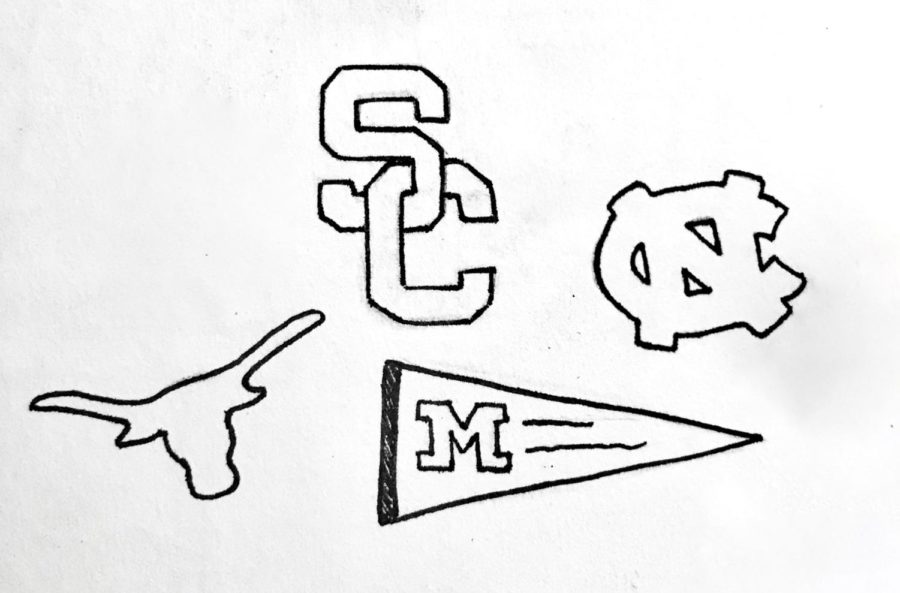Fame and Fortune
The changing world of collegiate athletics and new NCAA policies
At the collegiate level, it is not uncommon for student-athletes to feel tied to, or even owned by their school. According to the NCAA (National Collegiate Athletic Association), “Education is at the forefront of Division 1’s mission.” However, when students are asked to
commit to their team for several hours each day, their studies or other activities, such as getting a job, may not be priorities. The time commitment may not always feel worth it. But a new NCAA policy could change this.
A new name, image and likeness policy (NIL) has been implemented for NCAA athletes. This policy allows them to profit through endorsement deals. The significance of this semi-new policy, which was first put into effect July of 2021, is that it can give
players financial freedom and a sense of individuality. It also allows them to earn money while still being connected to their school. Previously, NCAA rules stated that “You are not eligible for participation in a sport if you have ever: taken pay, or the promise of pay, for competing in that sport.”
However, the NIL rule doesn’t directly involve competing in the sport, it allows athletes to profit off of the attention they have received from their performance. So it is most likely that athletes who are on high-performing teams and have had success in their sport will bring in the most revenue. “The handful of college sports stars who become national figures each year will be capable of earning a six-figure income,” ESPN said. ‘
This policy is advantageous for brands working with widely known athletes, for the athletes themselves, and for their schools. But brand deals are not the only way they can make money-social media can be used too. According to ESPN, “The NCAA rules only prohibit a school
or its employees from paying an athlete directly for his or her NIL rights.” This law will only benefit players who choose to capitalize on it. Well known-athletes, especially football and basketball players, have the potential to earn large amounts of money. However, many players will not truly benefit. To make the most money, it is likely that brands will collaborate with widely-known athletes instead of those who have yet to make it into the spotlight.
Since players can also benefit through social media, those with higher followings who draw more attention will be the ones to feel the positive effects of this policy. There is a stark difference between the previous restrictions of profiting off of collegiate athletics and the future of new
NCAA rules. The abilities the new policies provide are incredibly rewarding and empowering for these athletes, as they can watch their competitive success translate to financial success. The possibilities are completely in their hands.
Mika is 16 years old, a junior at Garfield, and part of the Messenger staff. She loves playing soccer and tennis and being outside. She also enjoys spending...




